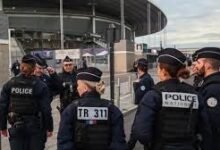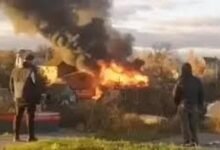‘World shrugging’ as Syria death toll mounts

More than 100 people, including 26 children, have died in air strikes on hospitals, schools, markets and bakeries in north-west Syria in the past 10 days, a top United Nations (UN) official says.
Human rights chief Michelle Bachelet blamed the attacks in rebel-held areas on the government and its allies.
But the attacks were met with “apparent international indifference,” she said.
Syria and its ally Russia have both denied targeting civilians in air strikes in the Idlib region.
Speaking to reporters, Ms Bachelet criticised the “failure of leadership by the world’s most powerful nations”.
The rising death toll in Idlib had been met with a “collective shrug” and the conflict had fallen off the international radar, while the UN Security Council was paralysed, she said.
She said the civilian targets were unlikely to have been accidental and warned that those carrying out the attacks could be charged with war crimes.
“Intentional attacks against civilians are war crimes, and those who have ordered them or carried them out are criminally responsible for their actions,” Ms Bachelet said.
Idlib province, along with the north of Hama province and western Aleppo province, is one of the last opposition strongholds in Syria after eight years of civil war.
It is supposedly covered by a truce brokered in September by Russia and opposition-backer Turkey that spared the 2.7 million civilians living there from a major government offensive.
Last week, the UN said more than 350 civilians had been killed and 330,000 forced to flee their homes since fighting escalated on April 29.
But that figure has now been revised, adding 103 extra deaths in the past 10 days alone. The estimate for the number displaced stands at more than 400,000.
The government – which is backed by the Russian air force – said the increase in attacks was due to repeated truce violations by jihadists linked to al-Qaeda who dominates the opposition stronghold.
Russia has denied reports earlier this week that it carried out airstrikes on a market and residential areas which left at least 31 civilians dead.
Even before the conflict began, many Syrians were complaining about high unemployment, corruption and a lack of political freedom under President Bashar al-Assad, who succeeded his father, Hafez, after he died in 2000.
In March 2011, pro-democracy demonstrations erupted in the southern city of Deraa, inspired by the “Arab Spring” in neighbouring countries. –BBC






